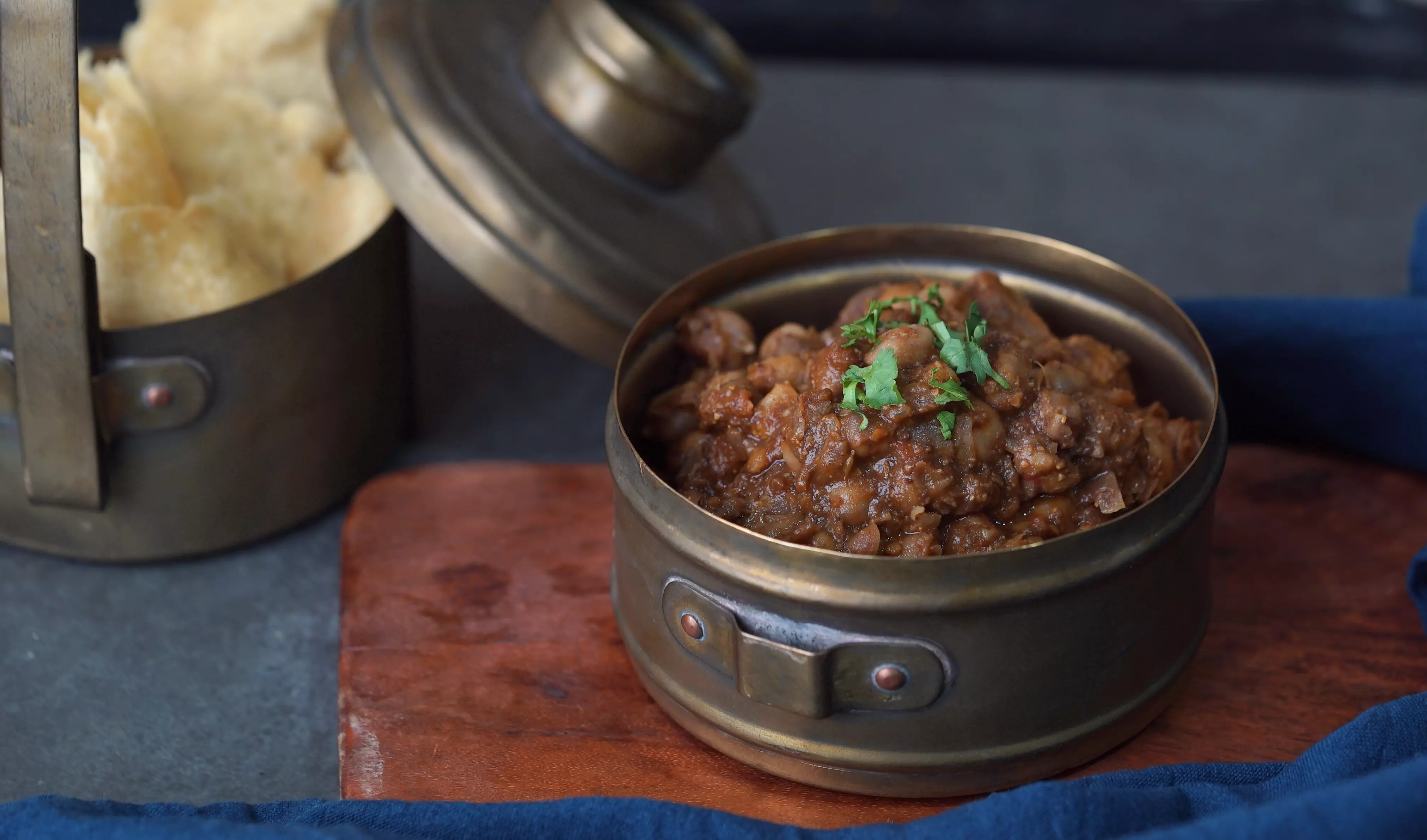Stay dehydrated: Inside the wonderfully weird world of India's pre-cooked meals industry
How businesses and home cooks in the country are providing packaged, ready-to-eat and travel-friendly meals to customers seeking ghar ka khaana away from home
- By Loading...
- | 9 March 2022 10:00 AM IST
 X
X
As you get queued for security check-in inside Kolkata's airport, a standee greets you with a warning: liquids above 100 ml including roshogolla are not allowed. A hilarious, and possibly the most absurd, signage in the world, this placard is indicative of something far deeper—the Indian peoples' unflinching devotion to their own food. Such that it finds its way into aeroplanes, folded inside crumbled (mostly reused) foil or dabbas secured with a plastic bag and a green/yellow/orange rubber band. Nowhere else is there such an elaborate culture around travelling snacks.
And honestly, save for a few jokes that I may have participated in, I really never thought about this too deeply. Until, a colleague shared a link on our office Whatsapp group. And I followed it into a website that calls itself www.heatandeatfood.com. What it basically does is, take home-cooked food and dehydrate it, making it easier to travel with and also increases its shelf life. It's like turning ghar ka khaana into a pre-cooked and packaged product of sorts; almost like the desi equivalent of America's M.R.E's or Meals, Ready-To-Eat.
To an Indian student or businessman, who is often on the move, this is like manna. Which Vitesh Shah, founder of the food service brand, confirms when he explains that the genesis of the venture itself is rooted in the sentiment around home-cooked food. "I was in the US with my family, when we observed that getting Indian food was a big challenge in the country. And getting quality Indian food was another story altogether," he recollects, explaining how that realisation morphed into a full-fledged business, with Shah's mother playing a pivotal role in conceptualising and quality checking the menu for Heat and Eat Food. Of course today, Shah's company also offers ready-to-eat meals and condiments apart from food dehydration and vacuum packing services.
What's in your dabba?
Simply put, the goal is to remove the water content from the food and there is more than one way to do this. With brands like Moving Meals, Heat and Eat and Satvita, which also specialises in pre-packaged cooked meals, the norm is to offer a mix of these services, with some of them also providing customers the option of choosing from their in-house menu. These typically feature comfort foods and usual suspects like dal-chawal, poha, sabudana khichdi, kurkuri bhindi and other regional staples. What I understand is, in both cases—whether you're getting your own food dehydrated or choosing from the brand's menu—the science is pretty much the same.
The actual technique entails processing cooked food through a machine for a time period of 18 to 36 hours at temperatures typically ranging from 45 to 52 degrees, depending on the item. This helps turn the food into a granular product, which does not require additional preservatives or chemicals and manages to keep the nutritional value intact. Within dehydration, there are different techniques like air drying, vacuum drying and freeze drying, which again varies. Elaborating on this, Bhavin Jain, founder of Satvita, shares that typically, air and vacuum drying are used for cooked meals. Whereas freeze drying is applied in the case of high-quality produce, where textures and aromas need to be preserved, such as with fruits.
Home is where the (dehydrated) food is
At a much smaller scale, there seems to be a cohort of Mumbai aunties who are also players in the pre-cooked meals' industry. One such 45-year-old from Kandivali, Mallika Sampat, says she's been providing vacuum-sealed meals to families with international-travel-borne kids for about six years. "My daughter went to study in the US and she used to struggle with food there. That's the first time I looked into my options and realised that there was something like dehydrating food." Unlike Chheda, Shah and Jain, Sampat did not have access to a factory or machines. So, she creates flavoured powders of everyday items like dal-chawal and works with a vendor to vacuum seal her products. Her clientele comprises a close-knit community of mothers and homemakers. But since COVID-19, that took a hit, so she now also supplies her products to local grocery stores.
And while both the motivation and the demand lies in the core emotion of yearning for food that tastes like home, with time, most of these players have had to diversify their customer base in order to increase business. For Jain though, the motivation was not so much an emotion as it was spurred by a curiosity around innovation. After spending almost a decade abroad, he returned to India. "I was looking to start my own business and was chatting with a scientist friend who pointed me in the direction of the dehydrated foods' market, which all those years ago, was huge outside, but only beginning to emerge in India." Today, for all of the three brands, trekkers, travel and tour companies and even the Indian army are as important customers, as the average Joe travelling or settling abroad. Chheda for instance, has now also started catering to bars and restaurants that are looking for freeze-dried/dehydrated fruits for their craft cocktails.
In other words, what started as an inquest into a seemingly bizarre website with unfamiliar offerings, opened up the doors to a far-reaching world with multiple players and uses. Now, for one of these guys to figure out how to dehydrate roshogollas. So both Kolkata airport personnel and the Bengali bhadralok can sleep in peace.
Images used for representational purposes



